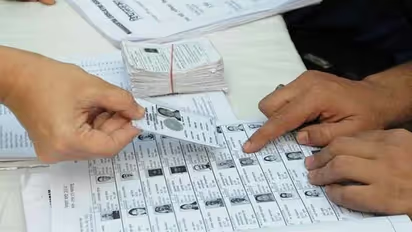Lok Sabha Election 2024 dates: What are the implications of Model Code of Conduct?

Synopsis
In a bid to ensure fair and unbiased elections, the Model Code of Conduct serves as a regulatory framework defining guidelines for political parties and candidates. Its core objective is to establish a level playing field and uphold the integrity of the electoral process.
The Election Commission of India (ECI) on Friday (March 15) announced that it will announce the much-awaited dates of Lok Sabha election 2024 at 3 pm on Saturday. Following this announcement, the Model Code of Conduct (MCC) will be enforced across the nation until the election results are declared. Here's a breakdown of what the Model Code of Conduct entails and the alterations it brings about:
What is Model Code of Conduct:
In a bid to ensure fair and unbiased elections, the Model Code of Conduct serves as a regulatory framework defining guidelines for political parties and candidates. Its core objective is to establish a level playing field and uphold the integrity of the electoral process.
Election Commission of India to announce Lok Sabha election 2024 schedule on Saturday
Restrictions on government announcements:
1. Once the announcements are made, ministers and officials are barred from announcing financial grants or making promises thereof.
2. Initiating projects, laying foundation stones, or making commitments regarding public amenities like roads or drinking water facilities are prohibited during this period.
3. Ad-hoc appointments that could influence voters in favor of the ruling party are also restricted.
4. Official visits cannot include electioneering activities, and the use of government machinery or personnel for election purposes is strictly barred.
5. Government transport and resources, including aircraft, vehicles, and personnel, cannot be used to advance the interests of any political party during elections.
6. Public spaces designated for election-related activities must be accessible to all parties and candidates on equitable terms.
What happens if the Model Code of Conduct is violated?
Although MCC does not possess legal authority, specific clauses within it could be reinforced through established statutes like the Indian Penal Code, Code of Criminal Procedure, and the Representation of the People Act.
Moreover, the Election Commission retains the power to sanction or revoke recognition of political parties in accordance with pertinent electoral regulations.
Stay updated with the Breaking News Today and Latest News from across India and around the world. Get real-time updates, in-depth analysis, and comprehensive coverage of India News, World News, Indian Defence News, Kerala News, and Karnataka News. From politics to current affairs, follow every major story as it unfolds. Get real-time updates from IMD on major cities weather forecasts, including Rain alerts, Cyclone warnings, and temperature trends. Download the Asianet News Official App from the Android Play Store and iPhone App Store for accurate and timely news updates anytime, anywhere.